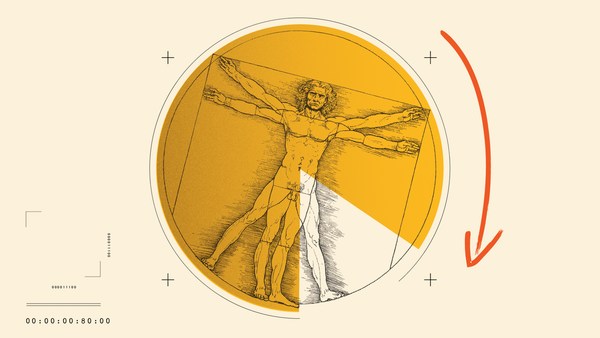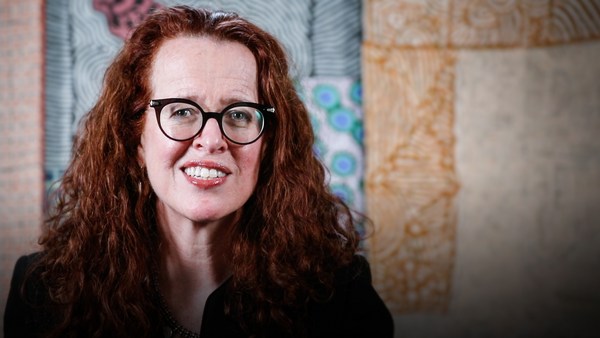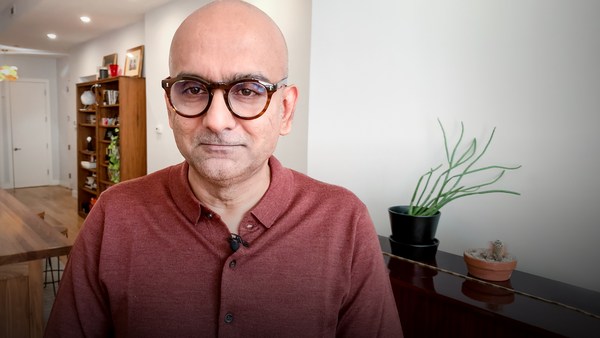In an era of extreme polarization, it's really dangerous to talk about right and wrong. You can be targeted, judged for something you said 10 years ago, 10 months ago, 10 hours ago, 10 seconds ago. And that means that those who think you're wrong may burn you at the stake or those who are on your side that think you're not sufficiently orthodox may try and cancel you. As you're thinking about right and wrong, I want you to consider three ideas. What if right and wrong is something that changes over time. What if right and wrong is something that can change because of technology. What if technology is moving exponentially?
So as you're thinking about this concept, remember human sacrifice used to be normal and natural. It was a way of appeasing the gods. Otherwise the rain wouldn't come, the sun wouldn't shine. Public executions. They were common, normal, legal. You used to take your kids to watch beheadings in the streets of Paris. One of the greatest wrongs, slavery, indentured servitude, that was something that was practiced for millennia. It was practiced across the Incas, the Mayas, the Chinese, the Indians in North and South America. And as you're thinking about this, one question is why did something so wrong last for so long? And a second question is: why did it go away? And why did it go away in a few short decades in legal terms?
Certainly there was a work by extraordinary abolitionists who risked their lives, but there may be something else happening alongside these brave abolitionists. Consider energy and the industrial revolution. A single barrel of oil contains the energy equivalent of the work of five to 10 people. Add that to machines, and suddenly you've got millions of people's equivalent labor at your disposal. You can quit oppressing people and have a doubling in lifespan after a flattened lifespan for millennia. The world economy, which had been flat for millennia, all of a sudden explodes. And you get enormous amounts of wealth and food and other things produced by far fewer hands.
Technology changes the way we interact with each other in fundamental ways. New technologies like the machine gun completely changed the nature of warfare in World War I. It drove people into trenches. You were in the British trench, or you were in the German trench. Anything in between was no man's land. You entered no man's land. You were shot. You were killed. You tried to leave the trench in the other direction. Then your own side would shoot you because you were a deserter.
In a weird way, today's machine guns are narrowcast social media. We're shooting at each other. We're shooting at those we think are wrong with posts, with tweets, with photographs, with accusations, with comments. And what it's done is it's created these two trenches where you have to be either in this trench or that trench. And there's almost no middle ground to meet each other, to try and find some sort of a discussion between right and wrong.
As you drive around the United States, you see signs on lawns. Some say, "Black Lives Matter." Others say, "We support the police." You very rarely see both signs on the same lawn. And yet if you ask people, most people would probably support Black Lives Matter and they would also support their police. So as you think of these polarized times, as you think of right and wrong, you have to understand that right and wrong changes and is now changing in exponential ways.
Take the issue of gay marriage. In 1996, two-thirds of the US population was against gay marriage. Today two-thirds is for. It's almost 180-degree shift in the opinion. In part, this is because of protests, because people came out of the closet, because of AIDS, but a great deal of it has to do with social media. A great deal of it has to do with people out in our homes, in our living rooms, through television, through film, through posts, through people being comfortable enough, our friends, our neighbors, our family, to say, "I'm gay." And this has shifted opinion even in some of the most conservative of places. Take the Pope. As Cardinal in 2010, he was completely against gay marriage. He becomes Pope. And three years after the last sentence he comes out with "Who am I to judge?" And then today, he's in favor of civil unions.
As you're thinking about technology changing ethics, you also have to consider that technology is now moving exponentially. As right and wrong changes, if you take the position, "I know right. And if you completely disagree with me, if you partially disagree with me, if you even quibble with me, then you're wrong," then there's no discussion, no tolerance, no evolution, and certainly no learning.
Most of us are not vegetarians yet. Then again, we haven't had a whole lot of faster, better, cheaper alternatives to meat. But now that we're getting synthetic meats, as the price drops from 380,000 dollars in 2013 to 9 dollars today, a great big chunk of people are going to start becoming vegetarian or quasi-vegetarian. And then in retrospect, these pictures of walking into the fanciest, most expensive restaurants in town and walking past racks of bloody steaks is going to look very different in 10 years, in 20 years and 30 years.
In these polarized times, I'd like to revive two words you rarely hear today: humility and forgiveness. When you judge the past, your ancestors, your forefathers, do so with a little bit more humility, because perhaps if you'd been educated in that time, if you'd lived in that time, you would've done a lot of things wrong. Not because they're right. Not because we don't see they're wrong today, but simply because our notions, our understanding of right and wrong change across time.
The second word, forgiveness. Forgiveness is incredibly important these days. You cannot cancel somebody for saying the wrong word, for having done something 10 years ago, for having triggered you and not being a hundred percent right. To build a community, you have to build it and talk to people and learn from people who may have very different points of view from yours. You have to allow them a space instead of creating a no man's land. A middle ground, a creation and a space of empathy. This is a time to build community. This is not a time to continue ripping nations apart.
Thank you very much.


